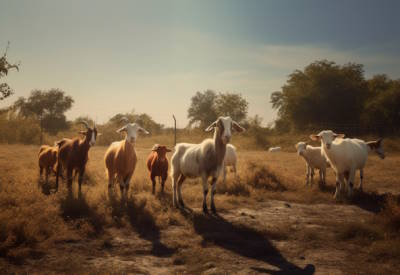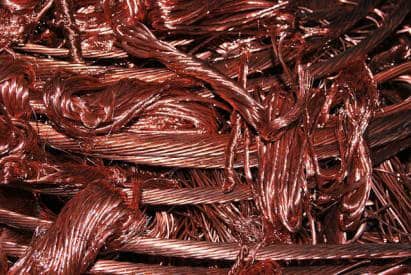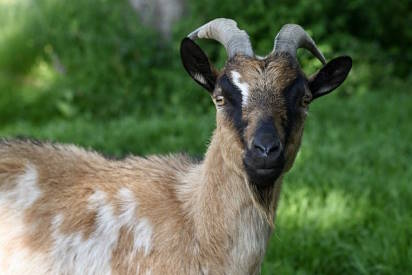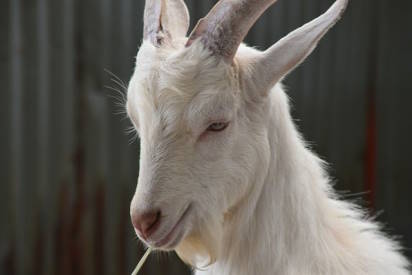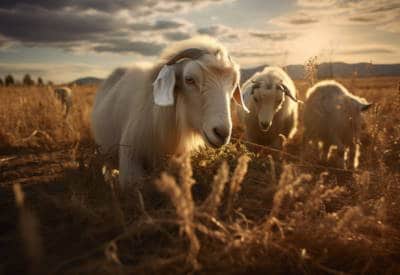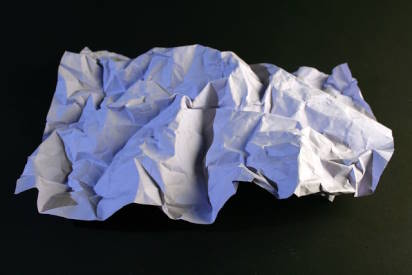Have you ever found yourself pondering the question: can goats eat copper? It’s an oddly specific query, but if you’re like me, diving deep into the world of goat care, such questions become surprisingly pertinent. The straightforward answer is yes, goats do need copper, but like everything else, it’s all about balance.
When I first started my journey with goat husbandry, I was swamped with advice, dos and don’ts, and a barrage of information. Filtering through the noise, understanding the essentials like the role of minerals, particularly copper, became a mission. And today, I hope to shed some light on this very topic for fellow goat enthusiasts.
Understanding Goat Nutrition
When you delve into the world of goat husbandry, you quickly discover that ensuring your goats have a balanced and nutritious diet is crucial for their health and vitality. Let’s take a moment to understand the basic dietary needs of goats and the role of minerals in their diet.
Basic dietary needs of goats
Goats, like any other livestock, require a mix of carbohydrates, proteins, fats, vitamins, and minerals to thrive. They’re often grazers and browsers, munching on grass, shrubs, and even trees. But while they’re known for being versatile eaters, not everything they ingest is necessarily good for them.
The role of minerals in a goat’s diet
Minerals are essential for various bodily functions in goats. They help in bone formation, blood clotting, and even the functioning of enzymes. Without the right balance of these nutrients, goats can suffer from a variety of health issues.
[GoatAffiliate]
Copper in Goat Nutrition
Now, copper isn’t just for pennies or plumbing; it’s a vital mineral in the diet of goats. But why is it so essential, and what happens if a goat doesn’t get enough?
Importance of copper for goats
Copper plays a significant role in various physiological processes in goats. It’s essential for enzyme activities, wool and hair pigment production, and the development and maintenance of the nervous system.
Signs of copper deficiency in goats
Without adequate copper, goats can show signs like faded or rough coat, poor growth, decreased fertility, and even anemia. So, it’s crucial to keep an eye out for these signs and ensure they’re getting enough of this crucial mineral.
Sources of Copper in Goat Diets
You might wonder where goats get their copper from. There are a few sources they can rely on.
Common foods with copper content
While grains like corn and barley contain some amount of copper, the content is relatively low. However, legumes such as clover and alfalfa are better sources.
Supplements and fortified feeds
For those who want to ensure their goats are getting adequate copper, there are several supplements and fortified feeds available in the market. These products are specially formulated to meet the dietary needs of goats.
Natural sources: water and soil content
Sometimes, the water or soil in an area can be a natural source of copper. However, the content can vary widely from one region to another.
Potential Risks of Excessive Copper
Just like anything else, too much of a good thing can be harmful. This holds true for copper in a goat’s diet.
Copper toxicity in goats
When goats ingest too much copper, they can suffer from copper toxicity or poisoning. This condition can be lethal and is often characterized by symptoms like jaundice, dark-colored urine, and sudden death.
Recognizing symptoms of copper overdose
Besides the signs mentioned above, goats with a copper overdose might also exhibit depression, abdominal pain, and even colic. Early detection and treatment are vital.
Factors affecting copper absorption: interactions with other minerals
Other minerals like molybdenum, sulfur, and zinc can influence how goats absorb copper. High levels of these minerals might reduce copper absorption, so it’s essential to ensure a balanced diet.
Safe Levels of Copper Intake for Goats
Striking the right balance is the key when it comes to copper in a goat’s diet.
Recommended dietary allowance for different goat breeds and ages
While there isn’t a one-size-fits-all answer, younger goats and certain breeds might require different copper levels compared to mature goats or other breeds. Consulting with a vet or livestock nutritionist can provide specific guidance.
Balancing copper with other minerals for optimal health
As mentioned earlier, other minerals can interfere with copper absorption. So, while ensuring your goat gets enough copper, it’s also crucial to make sure they’re not getting too much of other minerals.
Preventing Copper Imbalances in Goats
Prevention, as they say, is better than cure. Keeping a keen eye on your goat’s health and adjusting their diet accordingly can help prevent copper imbalances.
Regularly monitoring goat health
Regular health check-ups, either by you or a professional, can help detect any signs of mineral imbalances early on.
Adjusting diet based on specific needs
If you notice signs of copper deficiency or overdose, adjust the goat’s diet accordingly. Sometimes, a simple change in feed or providing a supplement can make all the difference.
Importance of quality feed and water sources
Ensuring your goats have access to clean water and high-quality feed can go a long way in preventing any nutritional issues.
Common Myths about Copper and Goats
Lastly, there are quite a few misconceptions floating around about goats and copper. Let’s set the record straight.
Debunking misconceptions
Some folks might believe that goats can eat anything, including metal scraps. However, this couldn’t be further from the truth. While goats are curious creatures, ingesting foreign objects, including metal, can be harmful.
The difference between goats and other livestock
It’s essential to realize that goats have different nutritional needs compared to other livestock. What might be beneficial for one animal could be detrimental to another. Always tailor the diet based on the specific needs of goats.
What Other Items Can Goats Eat Apart from Copper?
There’s a playful stereotype that goats will eat anything and everything they come across. From tales of them munching on tin cans to gobbling up your newspaper, the stories are endless. But let’s bust some myths and set the record straight about a few common items.
Cans
Contrary to popular belief, goats don’t eat cans! The stereotype likely originates from seeing goats nibble at the labels glued to the cans, probably due to the taste of the adhesive or the paper. While they might enjoy tearing the label off, the actual metal can is neither a snack nor safe for our four-legged friends.
Read More: Can Goats Eat Cans? Debunking Myths About Goat Diets
Paper
Now, paper isn’t nutritionally beneficial for goats, but they might occasionally be seen munching on it. It’s relatively harmless in small amounts, especially if it’s plain and ink-free. Think of it as a goat’s version of junk food: not particularly good for them, but not directly harmful in moderation. However, consistently feeding them paper, especially with ink or other chemicals, isn’t advisable.
Read More: Can Goats Eat Paper? Busting Myths On Their Diet
Plastic
Plastic is a definite no-go for goats. While their curious nature might lead them to nibble and investigate plastic objects, ingestion can lead to serious health problems, including intestinal blockages. Always ensure that your goat’s environment is free from plastic waste or items they might be tempted to taste.
Read More: Can Goats Eat Plastic? Debunking Myths & Surprising Finds
Can goats eat copper – final thoughts
So, there we have it – the intriguing world of goats and copper, neatly unpacked. Who’d have thought such a common metal would play such a pivotal role in our furry friends’ diets? From ensuring that radiant coat to keeping them hale and hearty, copper sure is the unsung hero in a goat’s meal plan.
As we wrap up, remember: goats aren’t just those adorable creatures with a penchant for mischief; they’re complex beings with specific dietary needs. Whether you’re a seasoned goat farmer or just starting out, always keep the copper balance in check.

